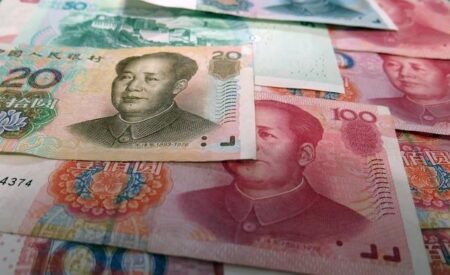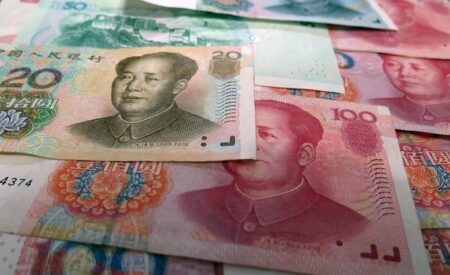The Bank of Canada is holding its key interest rate steady, signaling confidence in stable inflation and a cautious path toward economic growth. TD analysts believe this decision masterfully balances fostering recovery with managing global uncertainties
Browsing: monetary policy
Bank of Canada Governor Tiff Macklem warns that if the U.S. Federal Reserve loses its independence, it could set off significant ripple effects for Canada-disrupting trade, rattling exchange rates, and putting economic stability at risk
Brazil’s Central Bank kept its benchmark interest rate steady, signaling a potential cut in March as inflation pressures start to ease. This strategic pause aims to boost growth while maintaining stable economic conditions
Japan’s Prime Minister has vowed to take rapid action against speculative market swings following a sharp surge in the yen. Officials are committed to curbing currency volatility and protecting economic stability, CNBC reports
China’s digital RMB is igniting a trillion-dollar revolution in payment systems and crypto infrastructure. This powerful state-backed currency is poised to transform global finance and shake up traditional payment networks like never before
Japan’s 40-year government bond yields have soared beyond 4% for the first time ever, marking a dramatic spike in borrowing costs amid shifting monetary policies. This landmark moment signals a pivotal change in the country’s long-term debt outlook
Argentina’s central bank has secured a $3 billion repo agreement right before a crucial debt payment, aiming to inject liquidity and stabilize the markets amid ongoing economic challenges, Reuters reports
Argentina has launched exciting new foreign exchange bands along with a refreshed reserves policy, aiming to steady its currency and ignite investor confidence. This bold move directly confronts market volatility amid ongoing economic challenges
A warning has been raised about the future of cash in Australia following a groundbreaking government decision. Experts caution that this move could accelerate the shift toward a cashless society, igniting urgent concerns over accessibility and privacy
Argentina is gearing up to significantly increase its foreign currency reserves, currently held at US$251 billion in so-called “mattress dollars.” This bold move aims to stabilize the economy amid soaring inflation and volatile currency swings, reports Malay Mail
China’s digital yuan is set to begin earning interest as early as next year, state broadcaster CCTV announced, marking a groundbreaking shift in the central bank’s approach to its digital currency amid growing economic challenges
The Bank of Japan is signaling a bold shift from its ultra-loose monetary policy, hinting at possible rate hikes as the yen weakens and inflation concerns mount. Markets are buzzing with anticipation, closely watching for policy moves and their potential impact on the economy
China is gearing up to allow banks to pay interest on digital yuan holdings, a bold and game-changing step aimed at fast-tracking the adoption of its central bank digital currency. This thrilling move marks a major leap toward making the digital yuan an essential part of daily transactions nationwide
China set its yuan midpoint below market expectations, signaling a cautious and deliberate approach to currency gains. This move highlights Beijing’s strategy to ensure a steady yuan appreciation despite ongoing economic uncertainties, Bloomberg reports
Economists anticipate the Bank of Canada will keep interest rates steady in 2026, focusing on taming inflation amid a cautious economic outlook. Market experts predict gradual policy adjustments designed to support steady, sustainable growth
Brazil’s central bank is gearing up to inject a hefty $2 billion into the market through dollar auctions with a repurchase agreement on Tuesday. This strategic move aims to stabilize the currency and ease mounting market pressures, providing a vital boost to liquidity amid persistent global uncertainties
Japan’s recent rate hike has sparked a fierce generational divide: while older citizens cheer the effort to tame inflation, younger generations fret over soaring loan costs and mounting economic uncertainty, reports ěˇ°ě„ ěťĽëł´
BREAKING NEWS: Japan’s Finance Minister delivers a powerful warning-if the yen experiences volatile swings, the government is ready to intervene immediately. Authorities are poised to act swiftly to ensure currency stability, KYODO NEWS reports
The Bank of Japan is gearing up to raise interest rates to a 30-year high, signaling a bold new chapter in its monetary policy as it tackles soaring inflation. All eyes will be on Wednesday’s announcement, with markets buzzing in anticipation of the next big move
Brazil’s central bank predicts inflation will edge slightly above the target during this critical policy period, signaling upcoming challenges as it works to balance robust economic growth with maintaining price stability, according to TradingView insights




















